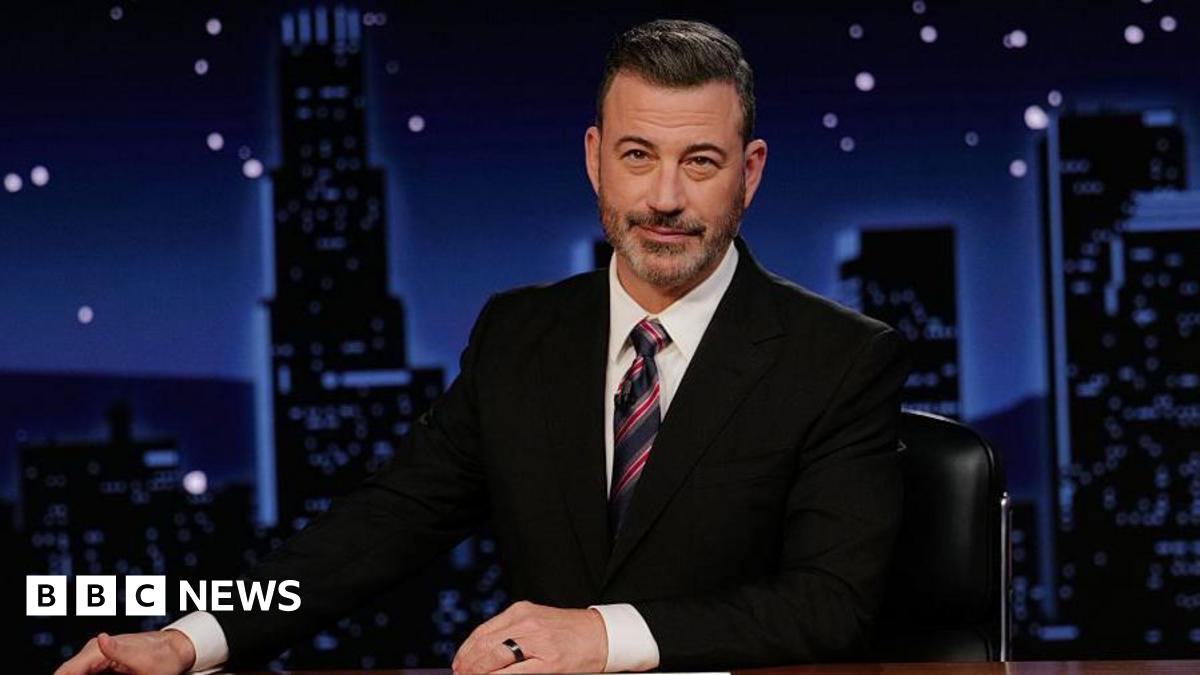We are now nearly one week into the saga that has taken Jimmy Kimmel Live! off of ABC’s airwaves, and Tuesday night will bring new developments.
Disney announced on Monday that Jimmy Kimmel’s show would return to air Tuesday night, but as expected, the same local network groups that sparked this story by preempting Kimmel at the behest of FCC chairman Brendan Carr are prepared to keep him off the air despite his return. Specifically, Nexstar and Sinclair, two of the largest local station owners in the country, will preempt Kimmel with other programming starting tonight.
Now, this isn’t something that will last long. According to former Washington Post media reporter Paul Farhi, station groups like Sinclair can only preempt network programming a limited number of times before breaching its affiliate agreement with a network like ABC. That puts the Sinclairs and Nexstars of the world on a “short leash,” Farhi writes.
Nerdy but true: A network affiliate like Sinclair can pre-empt a network show a limited number of times (depends on the contract), but then is in breach of its affiliate agreement and faces penalties or cancellation. So Sinclair is likely on a short leash here. https://t.co/f4ePsmdqSB
— Paul Farhi (@farhip) September 23, 2025
Still, it’s not entirely clear how many times an affiliate could preempt national programming before breaching its contract. And if a local affiliate did, in fact, reach that limit, the onus would still be on Disney to pull its programming.
That, of course, is where live sports come in. Live sports are in many ways the lifeblood of broadcast television in 2025. No other programming attracts the type of audience that flocks to live sports. And as we enter the heart of football season, when ABC will be airing a full slate of SEC football on Saturdays along with the NFL’s Monday Night Football most weeks, we could be in for a high-stakes game of chicken between Disney and companies like Sinclair and Nexstar should they continue to preempt Kimmel.
Prior to last month, when ESPN launched its brand new direct-to-consumer app, the leverage would have been skewed heavily towards Disney. If Disney pulled ABC programming from its Sinclair and Nexstar-owned affiliates, there would have been no means by which sports fans could access live games scheduled for the network. Now, while it might not be ideal, fans could purchase ESPN’s direct-to-consumer product to access that programming, regardless of whether or not their local ABC affiliate was carrying the game.
That may give local station groups a leg up in the short-term, as customers have an alternative means of watching sports, but would prove detrimental in the long-term.
As much as sports on broadcast television has made a resurgence in recent years, with more and more programming hours being dedicated to live sports, long-term trends in the industry indicate a shift towards streaming. If local station groups are starved of vital live sports content because preemptions put them in breach of contract, the shift from broadcast viewing to streaming viewing will only accelerate. Nothing would devalue local stations quicker than a widespread movement towards streaming; and few things would cause such a swift disruption than taking live sports off of broadcast television.
So at the moment, this seems like some good old-fashioned posturing between multi-billion-dollar corporations. Sinclair and Nexstar are going forward with Kimmel preemptions to score political points with an administration that controls the fate of its billion-dollar transactions. Disney is going forward with Kimmel’s show, knowing it has the true trump card in the form of live sports that these local station groups need to survive.
The question is how far will this song and dance go? Will Disney ever be forced to withhold live sports from its local affiliates? Or will Sinclair and Nexstar wise up and start airing Kimmel again before things get ugly? Or is there room for a third option where Disney and its local station groups reach some sort of agreement that gives the local stations more programming flexibility without the risk of losing all of ABC’s programming?
We’ll have to wait and see. This type of scenario has little precedent; certainly not in the current media landscape. But how this shakes out could have significant impact on the future of broadcast television itself.
